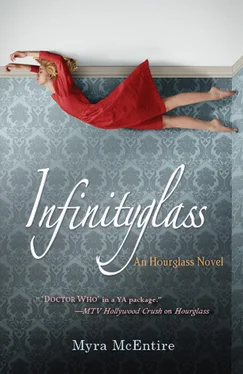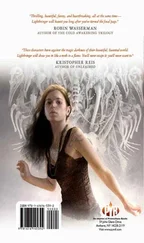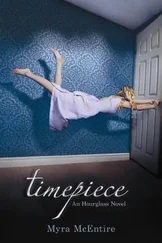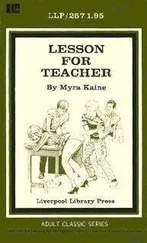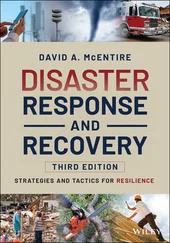When I walked past, she took no notice, just continued to play with her tiny doppelganger, singing a lullaby in French. Nowhere close to a ghostly specter, she was as solid as the stone patio beneath my feet. I ignored her. I had other things to think about.
Rips like her weren’t my only problem.

As usual, dance was my release. I spent a good two hours pretending everything was normal.
“The fund-raiser showcase for Southern Rep is in March,” Gina, who was my favorite pointe teacher, said at the end of the session. “You’re ready to perform. You barely broke a sweat today.”
“Maybe I’m just dehydrated.”
“You’re strong. You’ve always been able to dance circles around me, but I bet you could cover all the geometric shapes now.”
“You know what they say. Once you hit twenty-one, everything starts going downhill.” I stuck my tongue out at her and escaped into the dressing room before she could push me any further.
She knew I wouldn’t participate in the showcase. All of my teachers had mentioned it, and all of them had been blown off. My dad was too cautious to put me on display.
I untied the ribbons of my pointe shoes and pulled my feet out, preparing to remove layers of lamb’s wool and cotton to see how bad the damage was. I anticipated bloody toes, so I grabbed medical tape and scissors.
I’d ended up dancing because of an injury. Four surgeries and a pin in my shinbone—because I’d healed too fast from a gunshot wound. The doctor ignored the healing rate, probably paid off by my mother, and insisted that I do something physical beyond my three-times-a-week physical therapy. Dance was the answer. A few forced years at a combination tap, jazz, and ballet class as a child had taught me the basics, but rather than send me to a class out in the big bad world post accident, Dad had converted a building on our property and hired private teachers. My jail of a home life might have been all lock-down penitentiary, but at least my prison had a dance studio.
Dancing in the showcase wasn’t my dream, and if I had to put up a fuss, the fuss wouldn’t be for that. Newcomb, Tulane’s School of Liberal Arts, on the other hand, had a dance major. Whatever I decided to do with my life wouldn’t be easy. If I wanted out of the Chronos prison my father had built for me, I’d be in for a fight.
I removed the wrapping from my toes and geared myself up for the damage.
There was nothing there. My toes were whole and perfect, not a scab or a scrape to be seen.
“What the hell?” I stared at the stained wool in my hands and sorted through all the layers before doing the same with the cotton. I’d always healed fast.
But never this fast.
It was in line with everything else that had been wrong lately. I wanted to talk to Poe, and I’d texted, but he wasn’t answering.
I pushed up off the floor and headed for the shower, stripping my arms out of my leotard before I shut the door.
I couldn’t sleep. Or eat. I didn’t need to. My vision had sharpened. The simplest of sounds echoed inside my brain like monosyllabic earworms. When I practiced changing my body, I could hold shapes without tiring. At all. I’d even been able to manipulate my vocal cords.
I stared at my God-given body in the full-length mirror. Hours of dance kept me thin, but I’d finally gotten past the awkward side of it, thanks to muscle tone. Smooth, fair skin, even though there should’ve been scars on my shoulder and my leg. Dark brown hair and hazel eyes, like my mother.
I turned away from the mirror and stepped into the shower.
When I got out, I had a new text. Dad, requesting an audience.
I avoided looking at the bench as I crossed the courtyard. No little girl, but the lullaby still hung in the air, floating on the cold autumn wind.

The Chronos offices occupied a full square block in the Central Business District, just off Canal, in a building designated for Girard Industries. Heavy security discouraged most visitors, and if anyone managed to get through, two floors of apparent telemarketers would’ve bored them away. Most days, my dad worked from that building. But today, I’d been called to his home office.
I liked to call it the throne room. He didn’t like it at all.
“Poe is where ?”
“Tennessee.” Dad wore his usual poker face. “ICU at the Vanderbilt University Medical Center. He was hurt, badly, but is expected to recover.”
“How—”
“I don’t know how, Hallie. Just that he had a terrible knife injury and almost bled to death. But he didn’t.”
I blew out a deep breath. Dad’s words rolled through my brain like the crawler at the bottom of a news broadcast.
“When’s he coming back to New Orleans?” I asked.
Dad’s eyes closed briefly, and he pinched the bridge of his nose between his thumb and index finger.
“Dad?”
“No idea.” He dropped his hand. “But if I let him come back, things are going to change.”
If . I wanted to let loose, like Godzilla on an unsuspecting city, but people crossed oceans to avoid Paul Girard’s anger. Not a good idea to cause more if I wanted to get Poe back.
“No one else has the same skill he does,” I said, trying to reason. “Are you really willing to let him walk?”
“Possibly, yes.”
“Can we talk about why ?”
My father went to the mahogany liquor cabinet, took a few ice cubes from the ice bucket, and dropped them into a glass. He poured a glass half full of amber-colored liquid. It was only on the rocks because lunchtime hadn’t rolled around yet. After that, it was straight-up.
“Poe’s loyalties have come into question.”
“Who would he be loyal to besides us?”
Dad set his glass down firmly and wiped his mouth with his thumb. His hands went to his hips, pushing back his suit jacket, exposing the lines of his holster.
“No,” I said. “No way. Not Poe.”
The cutting edge of betrayal overrode the feeling of dread she usually conjured up.
My mother.
“How did you find out?” I asked.
“She called. As a courtesy.”
I could imagine how courteous that conversation had been.
Dad and I didn’t talk about her, and only in business terms when we did. She’d done a bunk when I was ten, though she’d stayed at Chronos. I rarely went on jobs for her and had started to refuse them altogether, so a couple of years ago, she’d “made things easier for all of us” by choosing to operate out of her own office. She’d only made things easier for herself.
Teague Girard might be able to give up her family, but she’d sure as hell stick around for science.
“Why? Why would Poe do that?”
“I think you should sit down,” Dad said.
My head came up sharply. Weakness wasn’t in Paul Girard’s vocabulary, yet he sounded unsure.
“You know I’m about business. Always have been.” He filled his glass a little higher than halfway this time. “That’s why your mother pursued me, because of my connections and business sense.”
Not because she loved him.
“She brought Chronos to me.” He took a drink. “This much you know.”
I nodded.
“Chronos had chosen to be esoteric instead of savvy, and she wanted to change that. Time is money, and things were going downhill. There are people with special time skills all over the world. I didn’t know about those talents until your mother. Once I believed, I threw my backing behind Chronos. It didn’t take me very long to see the benefits, so I got involved.” He swirled the Maker’s Mark whisky in his glass. “There were people who didn’t agree with the way your mother wanted to handle things. One is the head of the Hourglass.”
Читать дальше
